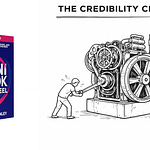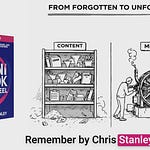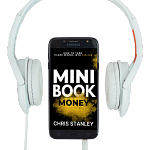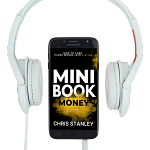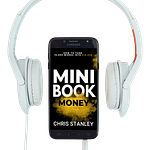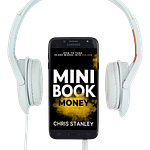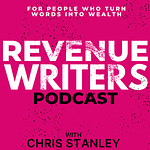Most aspiring authors overcomplicate their book. They chase trendy topics or guess what the market wants. But the truth is simpler and more powerful:
Your book becomes easier to write (and more resonant) when your offer of a solution is something you’ve already lived.
In this episode, Chris Stanley breaks down the “O” in the POWER framework and shows why the offer you make is more than a tactic, it’s a category decision.
You’ll learn:
Why different solutions to the same problem create entirely different books
How to choose the right “offer” based on your own lived experience
Why your book is taking forever if you haven’t already walked the road yourself
The real reason his bestselling books were written in 3 days or less
If you want to write a book that’s fast to produce, powerful to read, and easy to position, this is where it starts.
This is covered in detail in his books,
Mini Book Writing & Simple Online Business.
Transcription
Welcome back, revenue Writers to The Revenue Writers Podcast. I'm your host, Chris Stanley, and I'm sitting here traveling on my sailboat. Uh, so you might hear some distant slapping of waves or sails flapping in the breeze, but you know, I wanted to talk to you guys, so here I am. Alright. Today I want to continue the series we've been talking about and building your power promise.
We've talked about. How you lay out the problem, uh, and choose a problem that your book or your writing or your, you know, your product is going to solve and that you must establish this before you write anything that that's the most important thing, especially with the book, but really when you write anything.
So now I want to talk about how you offer a solution to the problem. So we're spelling out power. Um, the power promise and peace, the problem now, or the offer of a solution. And so what you offer as a solution is basically your category that you're settling into. So let me give you an example. Um, there's a, the problem might be, Hey, my girlfriend doesn't like my beard.
Right? Okay. My girlfriend doesn't like my beard. Alright, so now there are several different. Offers of a solution you can have to this same problem. You could say, Hey, I offer razors and tips on how to shave. You could be writing a book about that. Or you could write a book about, um, electrolysis and how it's something men should consider so they don't have to shave so much, right?
Uh, but you could also write a book, completely different category of book and say. How bearded men can find girls that love beards in seven days or less, or something like that, right? So your solution could be you get a new girlfriend, or it could be you could learn how to shape, or it could be electrolysis, but whatever you choose as your offroad of a solution is the category you're now putting yourself into.
And so this is very important because we think that we know the problem, and then there's the obvious solutions. But the way that you choose and the easiest way to write a book with a powerful offer of a solution, the best way to do it is however you solve the problem yourself. It sounds really simple, but sometimes we try to go way outside of our skillset, our experience, and our expertise and our life.
Um, stories. And find something completely different. Like, oh, you know, I wanna start talking about how to, to pitch LinkedIn to other people and how to be a LinkedIn expert. Well, uh, is that how you built your business? You know, like you wanna zero in on how you solved a problem yourself. Your offer of a solution should be a solution you have already experienced and done for yourself.
If you do that, writing your book is so much easier. It just flows naturally because you've already done it. You know the steps, you have stories to it, and you can honestly and accurately predict a timeline of which you can solve a problem. What I see people struggling with, myself included, when we go to write a book and we are not super experienced, we have not, uh, experienced the solution fully, or we don't know the answer ourselves yet.
That's what a book takes months or years to write. But every book that I have written, my bestselling books have all been written in the least amount of time. Well, the biggest bestsellers that my top three books have been written in three days or less. The ones I struggled months to write, and I have spent months and years writing books.
Um. Are ones that I didn't know the answer to. I had to go do research, I had to figure it out. I had to test, I had to think. I had to write and rewrite. And a lot of times those books aren't near as good because there was no clear cut answer or direction from the beginning. So you want your book to be easy to write.
You want your writing to be on point and resonate with people. You choose an offer of a solution. That you've experienced yourself, and you can give an accurate and honest timeline. All right, until next time.





